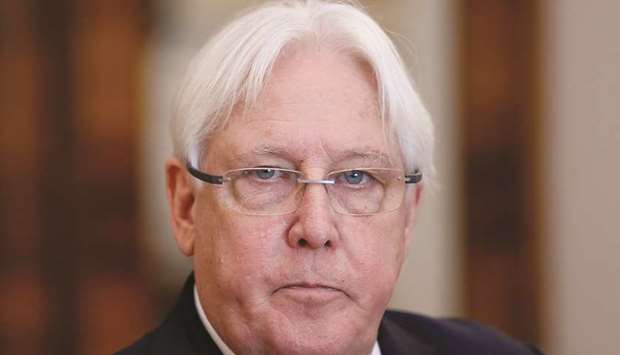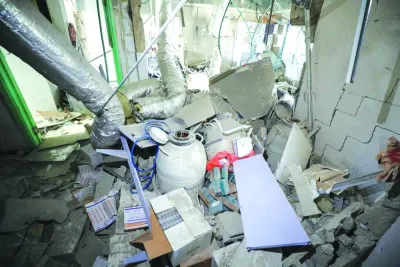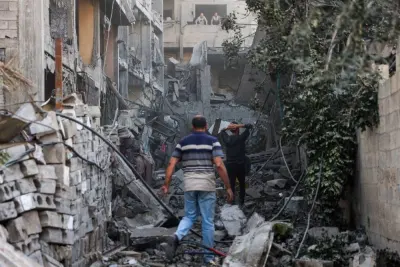The war in Yemen can be stopped because the warring sides still support a UN peace deal brokered in Stockholm last December, UN envoy Martin Griffiths said yesterday.
The four-year war between the Houthi movement and a Saudi-backed coalition supporting the Yemeni government has killed many tens of thousands of people and left millions on the brink of famine.
“I believe that this war in Yemen is eminently resolvable,” Griffiths told reporters in Geneva.
“Both parties continue to insist that they want a political solution and the military solution is not available. They remain committed to the Stockholm agreement in all its different aspects.”
He said that while the Stockholm agreement was taking some time to be implemented, both sides saw it as a gateway to opening up negotiations on a political solution, and the international community supported the deal.
Last week a meeting between the warring sides, on the neutral ground of a UN ship in the Red Sea, brought a surprise breakthrough, with agreement on technical aspects of a ceasefire deal in the flashpoint port of Hodeidah.
Griffiths said those talks had made more progress than he had expected, reaching operational agreements on troop withdrawal plans under the Stockholm deal, which envisages a UN-backed team taking over management of the port as the two armies pull back.
There were several issues that remained unresolved, including how to handle the port’s revenue and governance, and how to handle local security forces, Griffiths said.
He said he also took heart from the movement of coalition forces out of Yemen.
Last month, the United Arab Emirates, a key member of the Saudi-led coalition, began scaling back its military presence, Western diplomatic sources said.
Griffiths said it was a very deliberate push towards a commitment to peace.
The peace process was still vulnerable to a “detonation” such as attacks on Saudi infrastructure which could open up a regional conflict, he said, adding that he was attempting to de-escalate things before they reached that point.
The UAE is a key partner in the coalition that intervened in Yemen in 2015 to back the internationally-recognised government of President Abd-Rabbu Mansour Hadi.
In a Washington Post opinion piece published on Monday, the UAE junior foreign minister Anwar Gargash said Houthis should see the move as a “confidence-building measure to create new momentum to end the conflict”.
Since 2015, tens of thousands of people - mostly civilians - have been killed in the conflict described by the United Nations as the world’s worst humanitarian crisis.
The conflict has also seen the Houthis launch repeated attacks on Saudi Arabia, including at least 20 missile and drone strikes on the kingdom in June alone.
Saudi advanced air defences successfully intercepted most of the strikes but failed to deal with some, including a drone attack on the vital airport of Abha, in the south, that killed one person and injured 21 others.
Yesterday, the Houthis’ top political leader Mahdi al-Mashat said the group was ready to stop attacks on Saudi Arabia and engage in a dialogue with it but on certain conditions.
“(We) are fully prepared to stop missile and air strikes if the enemy takes similar measures and facilitates the flow of basic aid through ports, and then we can begin a political process,” he said, according to the Houthis’ Saba news agency.
He also denied that the Houthis were “puppets” of Iran as purported by the United States and its Saudi and Emirati allies.
Mashat made the comments during a visit to Sanaa by Robert Malley, president of the International Crisis Group consultancy and a former adviser to US ex-president Barack Obama.
The visit by an American and think tank head to the rebel-held Yemeni capital is notably rare.
Malley, in a tweet, said he visited Sanaa as part of a trip that has already taken him to Aden, seat of Yemen’s internationally recognised government, as “part of our efforts to speak to all sides and help bring an end to the catastrophic Yemen war”.

Martin Griffiths


